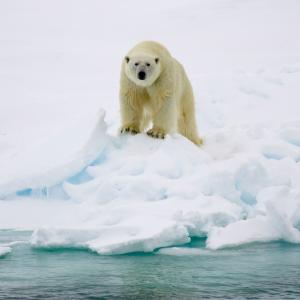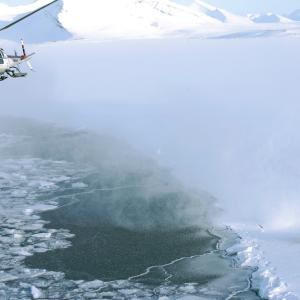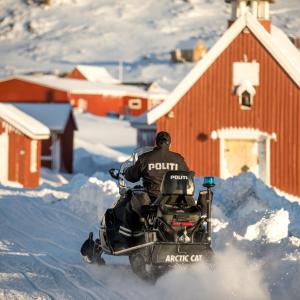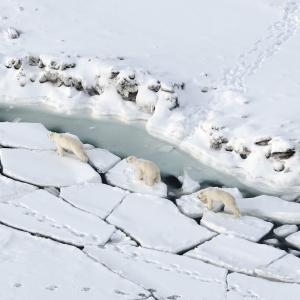
You may have seen some misleading recent commentary about our work with polar bears.
We do not support, promote or facilitate the trade in polar bear parts.
All our work is based on what the science and evidence tell us is needed. In the case of polar bears, climate change and habitat loss are the biggest threats, and that is where we focus our work.
We don’t - and never would - play a role in regulating hunting and as a conservation organisation we strongly oppose any hunting that puts the survival of a species at risk. And we do not support the hunting of an animal solely for a trophy.
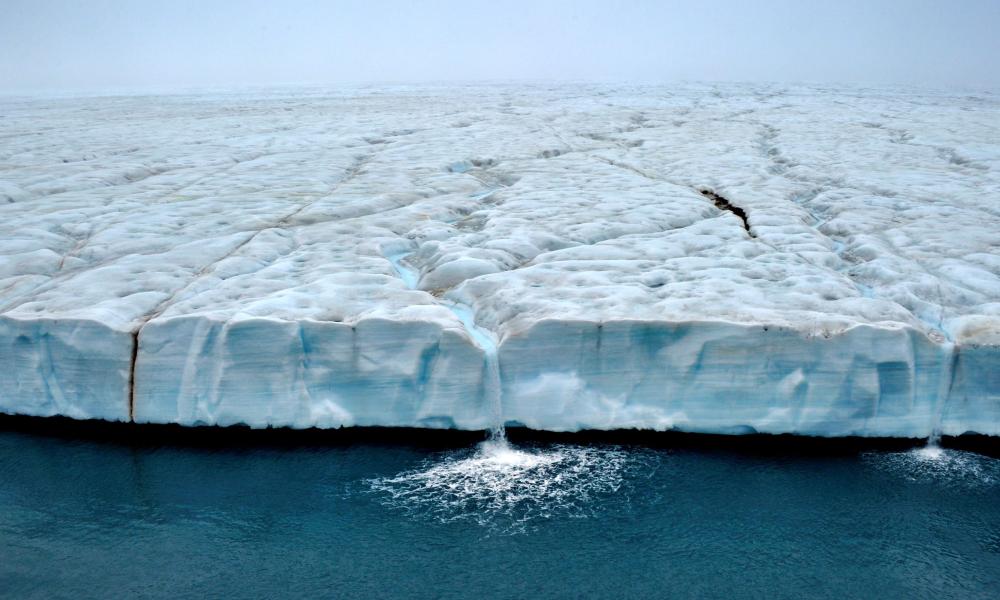
Polar Bear Hunting
Polar Bear Hunting
As upsetting as some of us might find hunting, research shows that it is not a major threat to polar bears and does not pose a threat to their conservation – we continue to keep this under review.
It is a complex issue, often linked to the rights of Indigenous peoples and local communities. Indigenous peoples have hunted polar bears sustainably for food, clothing and other uses since before our recorded history, and have legal rights to do so in some countries such as Canada.
Acknowledging these traditional cultural practices is not the same as supporting, advocating, facilitating or promoting the trade in polar bear furs.

Monitoring, tracking, and research
Monitoring, tracking, and research
Our mission is to protect and restore nature and tackle the issues that pose the biggest threats to wildlife, like climate change and habitat loss.
All our work is based on what the science and evidence tell us is needed. This sometimes requires a careful balancing of the needs of people and of nature.
Thanks to our brilliant WWF UK supporters, we fund scientific monitoring of polar bears in Svalbard in Norway. We are developing non-intrusive tracking methods and support research on the impacts of climate change on polar bears, and advocate for the protection of their habitats. We also support projects led by Indigenous communities on monitoring of Arctic species populations, including monitoring denning habitats of polar bears in the Canadian Arctic, which rely upon communities’ traditional knowledge of their landscapes.
This work is essential to ensuring the long-term survival of this magnificent species and is at the heart of what we do.
Q&A
What is WWF's position on a ban of the trade in polar bear products?
We do not work to support, promote or facilitate the fur trade.
In fact, we support very strict limits and regulations on the trade in polar bear products.
Supporting a trade ban when experts say the agreed criteria are not met would undermine existing international agreements (which are vital for preventing the damaging trade in many species) and would infringe on the rights of the Indigenous peoples of the Arctic - without delivering any conservation benefit to polar bears.
The most recent analysis of the trade in polar bear products found that it was at a very low level and, whilst uncomfortable for many of us who would not wish to purchase any such product, it is not a threat to the conservation of polar bears.
That is why WWF, along with IUCN and TRAFFIC and CITES scientific experts, supported the listing of polar bears under CITES Appendix II which tightly regulates the trade of polar bear products but does not ban it entirely.
Does WWF support a ban on polar bear hunting?
We have no role in regulating or setting the rules and regulations around hunting of species – that is the responsibility of relevant national, regional or local bodies.
We are always concerned about the sustainability of any hunting of wild species and we do not support the hunting of an animal solely as a trophy.
In some limited circumstances, for example where Indigenous Arctic people live in areas of the US, Canada and Greenland, hunting is permitted if tightly regulated and it does not pose a risk to species survival.
Respect for traditional cultural practices that have been carried out sustainably for many generations is important to ensure both people and nature can thrive.
As well as focusing our efforts on fighting the biggest threats to species – climate change and habitat loss, we continue to examine and monitor whether hunting is sustainable and we keep our position under review, informed by the latest available science.
If the science changes, we would adjust our position accordingly.
We know unsustainable and illegal hunting are driving some species to the brink of extinction and we fight to protect them and their habitats.
Where hunting or trade is unsustainable, WWF has campaigned for it to be banned or curtailed – including for species such as leopards, African grey parrots, pangolins, or the commercial trade in elephant ivory and rhino horn.
What is WWF's response to the Guardian story of 15/02/25?
The article mischaracterises our position.
We do not lobby for or work to support or promote the polar bear fur trade and in fact support strict limits and regulations on the trade in polar bear products.
We oppose all hunting that puts the survival of a species at risk.
Unsustainable hunting and illegal hunting is pushing some species to the brink of extinction, but this is not the case for polar bears, who face threats from climate change, shrinking habitats and increasing industrial activities.
We are actively supporting polar bear conservation – monitoring their numbers closely, protecting their habitat and working to tackle the number one threat to polar bear populations - climate change.
We will continue to examine and monitor whether any hunting is sustainable, and to promote sustainability where it is not, by constructively working with local governments, management bodies and Indigenous Peoples.
What is CITES?
The global convention that governs the international trade of species and their protection is called CITES (the Convention on International Trade in Endangered Species of Wild Fauna and Flora). It is an international agreement between governments, set up so the international trade in specimens of wild animals and plants does not threaten the survival of the species.
We will continue to examine and monitor whether any hunting is sustainable, and to promote sustainability where it is not, by constructively working with local governments, management bodies and Indigenous peoples.
